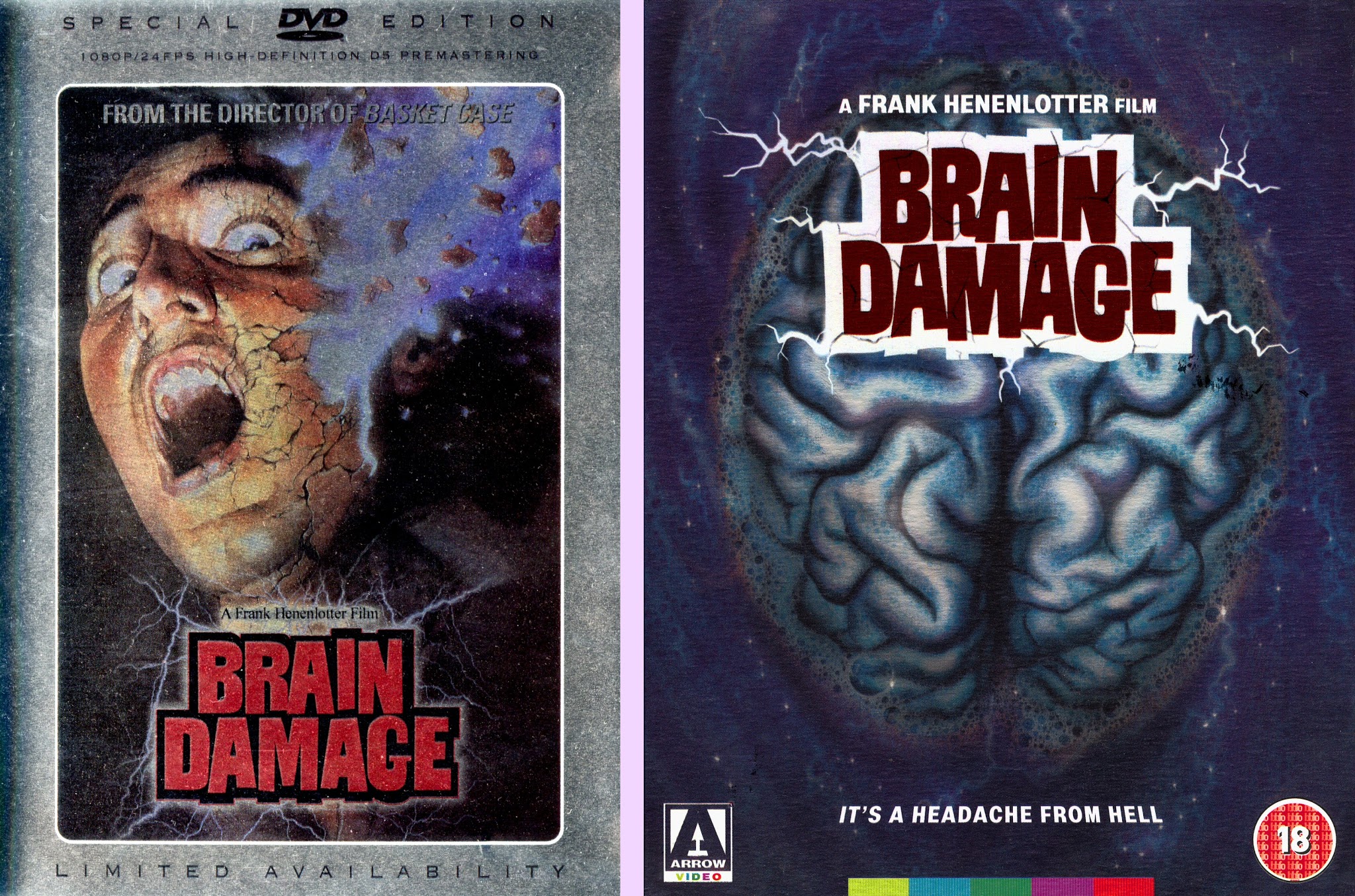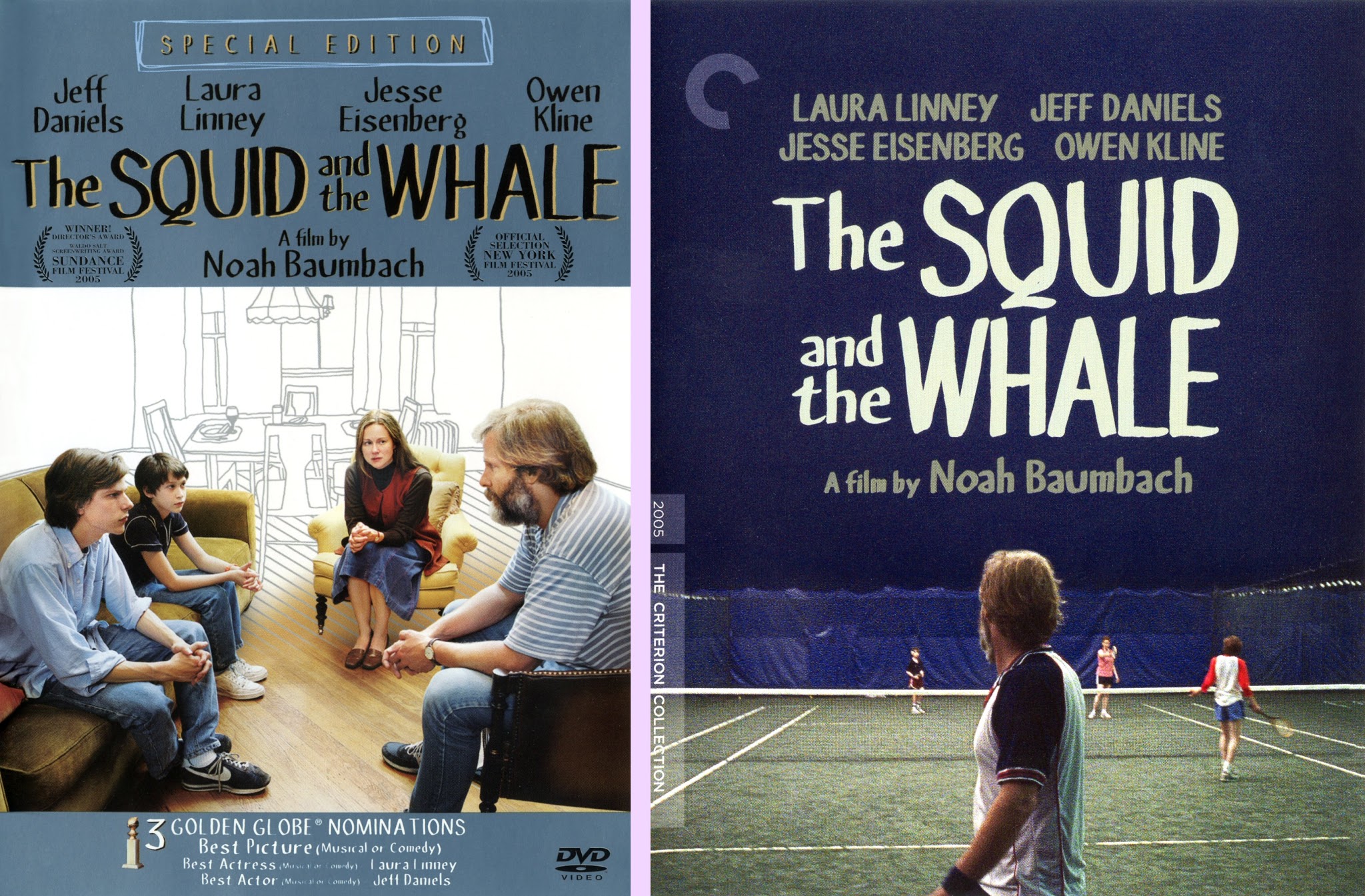Brain Damage is a simple and fairly obvious story in a way. A young man finds a small creature able to grant him on-demand elation and beautiful visions. And it all it wants in return is for it to feed him human brains. The drug allegory is obvious to the point of heavy-handedness, especially as our protagonist starts to develop withdrawal symptoms when he resists the creature's temptations. But it's just so effectively and charmingly told. Henenlotter caters to the cheap seats as much as ever here: in this film's most famous scene, a hooker goes to give a man a blowjob, but when she unzips his fly, a phallic monster pops out and chokes her to death. But seeing Henenlotter's work on 35mm for a change, paired with the eye-candy hallucinations and a cool soundtrack, gives this film a real attraction. And having TV's coolest ghoul Zacherley cleverly voice Elmer, cinema's most disgusting worm creature (sorry, Poltergeist 2), makes the movie downright delightful.
So Synapse released this all the way back in 1999, and it was a decent little DVD for its time, but quickly called out for an upgrade. It wasn't even anamorphic. So in 2003, they reissued it as a limited edition "1080P 24FPS HIGH DEFINITION D5 PREMASTERING" release. It was still a regular DVD, though; so was compressed to SD, but it was using a high def master... essentially just like the DVDs that combo in blu-ray combo packs. Anyway, it was certainly anamorphic and rendered the 1999 disc obsolete. But now Arrow has come around to give us an actual blu-ray version. And it's a combo-pack, so we can see if that Syanpse DVD really stands up.
 |
| 2003 Synapse DVD top; 2017 Arrow DVD mid; 2017 Arrow blu bottom. |
And since I've seen the question raised online, I'll just add that the running time is eighty-five and a half minutes on both releases, and there's no difference at all in the content of the film between Synapse and Arrow. I checked.
Also, when Synapse reissued Brain Damage, they added a new 5.1 mix (in addition to, not instead of, the original mono). Well, Arrow's now carried both of those over (in DTS-HD and LPCM, respectively) and also added optional English subtitles. So top scores there.
So Arrow's done a fine release, but if you've already got that Synapse limited edition, the real star is going to be the extras. Syanpse had a couple nice features, most notably an audio commentary by Henenlotter, along with the author of the Brain Damage novelization(!) Bob Martin and indie filmmaker Scooter McCrae. It also had an isolated music track, the trailer, and a fold-out insert with McCrae. So, not bad, but Arrow turned it into a real special edition.
They've got an all new commentary by Henenlotter, with a moderator who he calls Mike Hunchback, a terrific hour-long documentary, an enthusiastic on-camera interview with effects artist Gabe Bartalos, a brief but interesting talk with assistant editor Karen Ogle, a fun featurette exploring the filming locations of Brain Damage, an interview with the stop motion artist Al Magliochetti, a 20-minute Q&A with Hennenlotter, a cute stop-motion animated short film featuring Zacherley, several Brain Damage-related songs (I don't fully know what the deal is with those; they're silly but not my kind of thing), the isolated score, several stills galleries, and the trailer. What you should notice, though, is that it doesn't include the original audio commentary from the Synapse DVD; and while Henenlotter covers a lot of the same ground, of course, in his new one; it doesn't include Bob Martin, so fans might want to hang onto their old DVDs. Arrow's blu does come in a nice slip cover and include a 32-page booklet with a lot of art and some liner notes by Fangoria veteran Michael Gingold, as well as reversible artwork. Oh, and if you ordered this from Diabolik, you also got an enamel pin of Elmer.
So Arrow delivered a strong, first class release for Brain Damage. But how imperative it is to upgrade will depend largely on whether you're an extras guy or not. Because otherwise, Synapse's DVD holds up perfectly well (again, assuming you have the limited edition, not the original "Special Edition," which you should absolutely replace immediately). But the extras are great and very well-rounded, with all the interviewees striking that ideal balance between entertaining and informative. If you're on the fence about this one, I can confidently say you'll be happy with Arrow's release.


































































